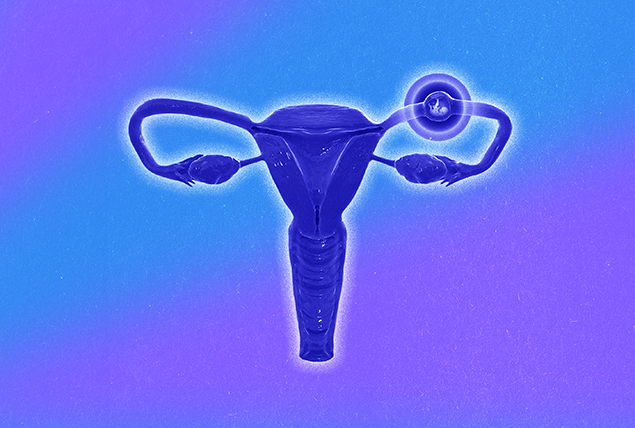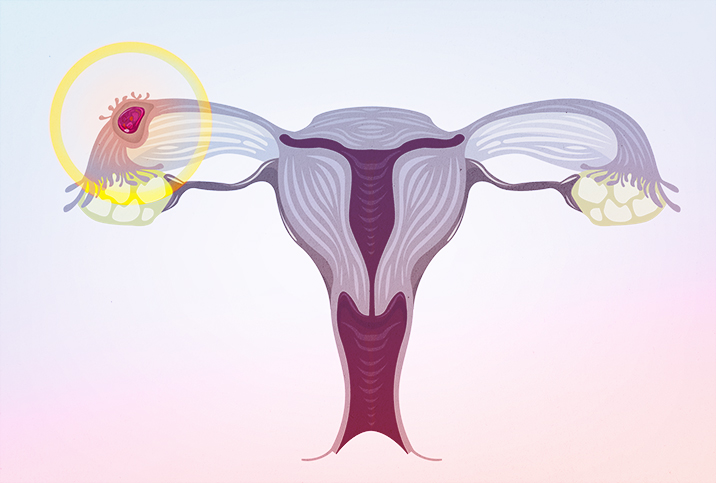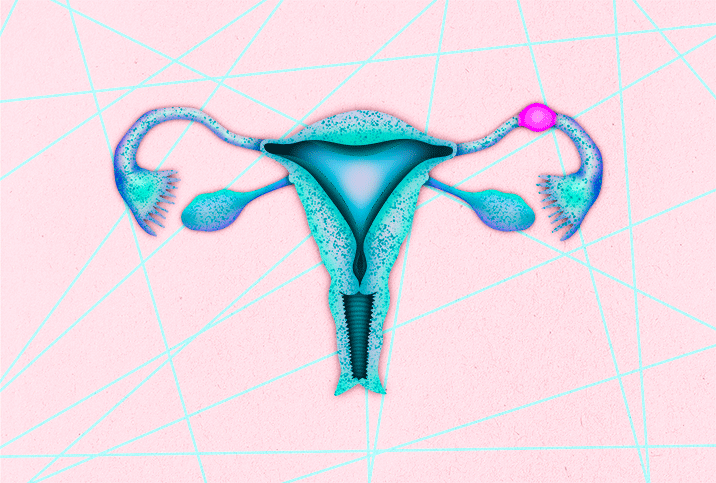Ectopic Pregnancy Has Life-Threatening Risks

Most sexually active adults know conception involves the successful pairing of an egg and a sperm. In most cases, the resulting pregnancy occurs inside the uterus. That's the only place a healthy, viable fetus can grow.
But sometimes, things go wrong.
In an ectopic pregnancy, a fertilized egg attaches outside the uterus. This is also called a tubal pregnancy because implantation usually occurs in the fallopian tube. No matter what you call it, though, a pregnancy outside the uterus isn't viable and cannot be carried to term.
Leaving the condition untreated can cause life-threatening complications for the woman.
How common are ectopic pregnancies? What causes the condition, and who is at risk? A couple of experts provided some answers.
An overview of ectopic pregnancy
The term "ectopic pregnancy" is a misnomer because it is never—at any stage—a viable pregnancy. Like a seed kept sealed away from water and sunlight, the fertilized egg has no chance of developing into a baby.
In healthy pregnancies, an egg fertilized in the fallopian tube moves into the uterus and implants there, said Sarah Yamaguchi, M.D., a board-certified gynecologist at DTLA Gynecology in Los Angeles.
"In ectopic pregnancies, something disrupts that [process], and the pregnancy implants in the wrong place," she explained.
More than 90 percent of ectopic pregnancies implant in the fallopian tube, according to the American College of Obstetricians and Gynecologists (ACOG). These are called tubal pregnancies.
However, in rare instances, ectopic implantation can happen in the cervix, ovaries, abdominal cavity, a previous cesarean section scar or other parts of the female reproductive system.
How common are ectopic pregnancies?
About 1 percent of pregnancies are ectopic, according to Johns Hopkins Medicine. The estimated rate rises to between 2 percent and 5 percent for patients who use in vitro fertilization (IVF) or other assisted reproductive technologies (ART).
However, a woman's personal risk of ectopic pregnancy varies depending on health and lifestyle factors. A history of infertility or gynecological problems, cigarette smoking and pregnancy after age 35 might increase the chances of ectopic pregnancy. Previous ectopic pregnancies also increase the risk of a future ectopic pregnancy.
Causes of ectopic pregnancy
The exact cause of an ectopic pregnancy is often a mystery, Yamaguchi said.
"It can be an anatomic abnormality causing it, like an abnormally shaped tube, but there are likely other unknown factors as well," she said.
In the end, what causes every ectopic pregnancy is a fertilized egg not completing its journey into the uterus. Instead, whether the fallopian tube is damaged, the uterus is shaped abnormally or a hormone imbalance slows the transportation process, the egg stops before it should and implants somewhere else.
Risk factors for ectopic pregnancy
It's difficult to calculate the risk of ectopic pregnancy for most women because the exact cause is unknown. However, some situations can increase the chances of tubal implantation.
According to Kecia Gaither, M.D., who is board-certified in OB-GYN and maternal-fetal medicine and the director of perinatal services/maternal-fetal medicine at NYC Health + Hospitals/Lincoln in the Bronx, New York, risk factors include the following:
- Previous ectopic pregnancy
- Pelvic inflammatory disease (PID)
- Prior tubal surgery, such as getting your tubes tied
- Smoking
- Using an intrauterine device (IUD)
- Using assisted reproductive technology, such as IVF
- History of endometriosis
- Structural anomalies, such as a heart-shaped or double uterus
"The highest-risk people are those who have had prior ectopic pregnancy," Yamaguchi said.
This isn't a case of lightning never striking twice in the same place. Whatever caused your last ectopic pregnancy—a damaged or misshapen fallopian tube or a hormonal imbalance—could still be a risk factor now.
Women who have or have had pelvic inflammatory disease are at a higher risk. PID is an infection that affects female reproductive organs, including the fallopian tubes. If left untreated, it can cause scar tissue that impedes a fertilized egg's pathway through the fallopian tube to the uterus. If scar tissue has built up, an egg might get stuck inside the tube and cause a tubal pregnancy.
Can an ectopic pregnancy ever be saved?
An ectopic pregnancy cannot be retrieved, saved or corrected in the hopes of carrying the pregnancy to term.
"Ectopic pregnancies do not resolve on their own," Gaither said, adding the only path forward is eliminating the tissue before it causes the fallopian tube to burst. "Untreated, [it] can result in catastrophic hemorrhage and death [of the pregnant woman]."
What is the fertility outlook after ectopic pregnancy?
Once a woman has an ectopic pregnancy, it is possible for her to carry a pregnancy to term in the future.
Gaither and Yamaguchi explained that women with a history of ectopic pregnancy have a heightened risk of experiencing this emotional and life-threatening situation again. But research shows there is hope.
A 2001 study of 328 women who had experienced an ectopic pregnancy and were trying to become pregnant again found 65.5 percent succeeded within an average of five months. Only about 10 percent of the new pregnancies were known to be ectopic.
In other words, more than half of the women had healthy, successful pregnancies after an ectopic pregnancy.
The way an ectopic pregnancy is treated can affect future fertility. Studies suggest that as long as one fallopian tube remains healthy and intact, the chance of future pregnancy remains almost the same, according to Mayo Clinic.
The bottom line? An ectopic pregnancy can't ever result in a baby, but a woman who wants to conceive can have a successful, healthy pregnancy next time.


















